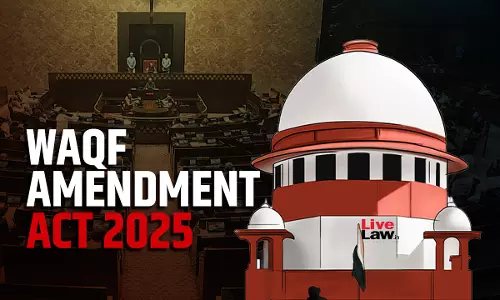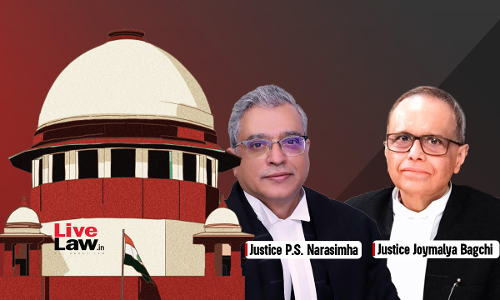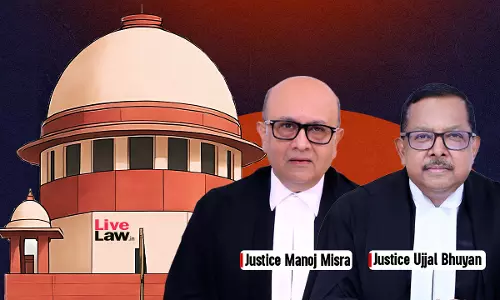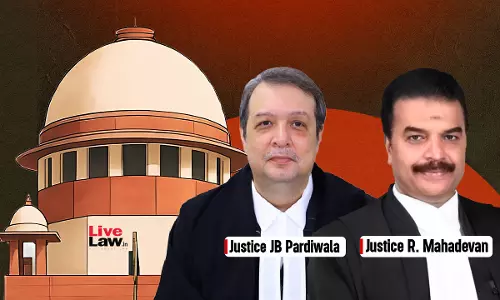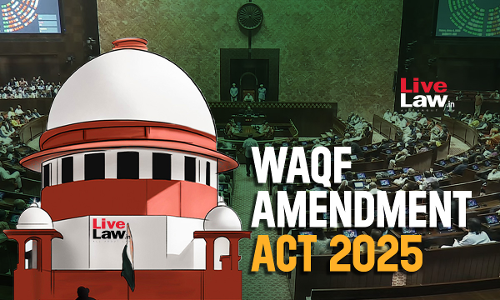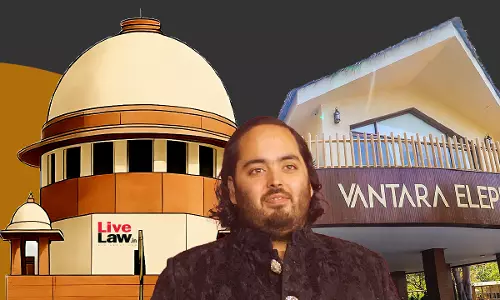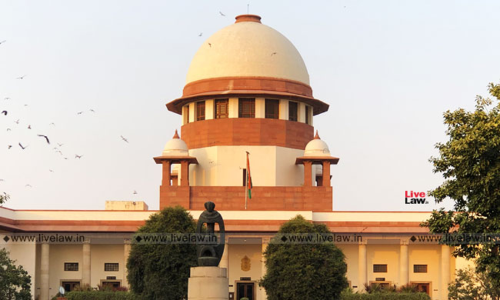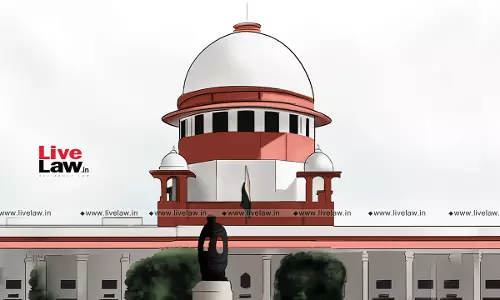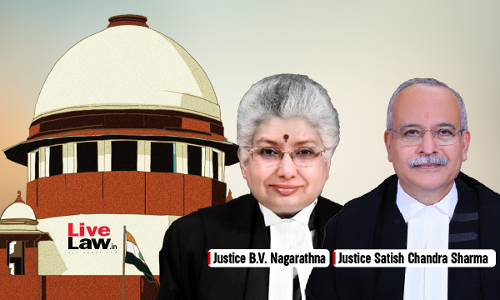Supreme court
Order VIII Rule 6-A CPC | Defendant Can't File Counter-Claim Against Co-Defendant: Supreme Court
Holding that a counter-claim under Order VIII Rule 6-A CPC can be filed only against the plaintiff, the Supreme Court set aside the Gujarat High Court's decision that allowed one defendant to file a counter-claim against a co-defendant. A bench of Justice PS Narasimha and Justice Joymalya Bagchi ruled in favor of the plaintiff, who appealed against the High Court's decision to allow filing...
Financial Bids In Public Tenders Can't Be Altered After Opening; Sanctity Of Process Can't Be Compromised For More Revenue : Supreme Court
The Supreme Court in a recent case ruled that once financial bids of the tender are opened, it would not be permissible to rectify the bids. Otherwise, the sanctity of the tendering process would be compromised. The Court reiterated that the mere possibility of accrual of more money would not be a ground to rectify the bid once opened.A bench of Justice Manoj Misra and Justice Ujjal Bhuyan...
For Search Without Warrant Under Special Enactments, Recording Of Reasons Is Mandatory : Supreme Court
The Supreme Court recently held that in every search conducted under a special enactment without warrant, the requirement of recording reasons to believe is mandatory.The Court noted that Section 165 of the Code of Criminal Procedure (S.185 BNSS) mandates the recording of reasons for the belief regarding the existence of incriminating materials and the necessity of imminent search, when a...
Vantara's Acquisition Of Animals As Per Regulations : Supreme Court Accepts SIT Report
The Supreme Court today(September 15) observed that the acquisition of animals in Vantara (Greens Zoological Rescue and Rehabilitation Centre) run by the Reliance Foundation at Jamnagar, Gujarat, is prima facie within the regulatory mechanism. There was no foul play found by the Special Investigation Team(SIT) constituted by the Court to inquire into various allegations, including whether...
Abolition Of 'Waqf By User' Is Not Arbitrary Prima Facie : Supreme Court
The Supreme Court on Monday (September 15) refused to stay the provision in the Waqf Amendmnt Act 2025 which abolished the concept of 'Waqf by user'."Waqf by user" is a concept that recognized a property as waqf not through a formal dedication deed but through long, consistent public use of the property for a religious or pious purpose.The 2025 amendment deleted Section 3(r)(i) of the...
Supreme Court Issues Directions To Ensure Humane Conditions In Beggars' Homes Across Country
The Supreme Court on September 12 has ordered that all Beggars Homes across the country must maintain data on the deaths that have been caused due to negligence or the lack of basic facilities, or failure to provide timely medical care. In such cases, the State/UT is responsible for providing a 'reasonable compensation' to the next of kin of the deceased. In cases where warranted,...
Sale Deed Executed Without Payment Of Price Is Not Valid; Such Sale Without Consideration Void : Supreme Court
The Supreme Court reiterated that a sale deed executed without the payment of consideration is not a valid "sale" under Section 54 of the Transfer of Property Act, 1882 ("TPA"). Such a deed is void and non-use.Reference was drawn from the case of Kewal Krishnan v. Rajesh Kumar and Others, (2022) 18 SCC 489, where it was also held that the payment of price is an essential part of a sale. If a...
Supreme Court Upholds Coal India's Dual Pricing Policy, Says 20% Hike For Non-Core Sectors Justified
In a crucial development, the Supreme Court on Friday (Sep.12) upheld Coal India Ltd.'s (“CIL”) 2006 interim policy that introduced a 20% price hike for non-core sector consumers. The Court validated CIL's “dual pricing” approach, reasoning that core sectors such as power and steel must be shielded from price increases due to their vital public utility functions, whereas higher prices...
Hindu Succession Act| State Cannot Invoke Doctrine Of Escheat To Challenge A Will Which Is Granted Probate : Supreme Court
The Supreme Court recently held that a State Government cannot invoke the doctrine of escheat under Section 29 of the Hindu Succession Act once a Hindu male has executed a Will, which has been declared to be valid and has been granted probate by a Court.The bench of Justice BV Nagarathna and Justice SC Sharma was hearing a challenge to the order of the Delhi High Court, which upheld the...



